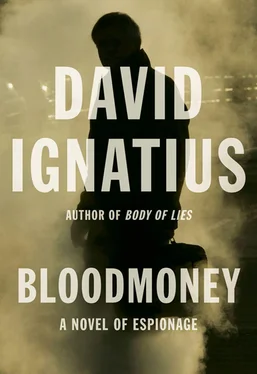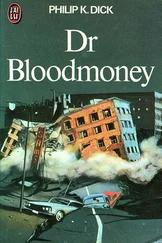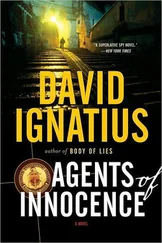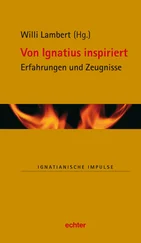David Ignatius - Bloodmoney
Здесь есть возможность читать онлайн «David Ignatius - Bloodmoney» весь текст электронной книги совершенно бесплатно (целиком полную версию без сокращений). В некоторых случаях можно слушать аудио, скачать через торрент в формате fb2 и присутствует краткое содержание. Жанр: Шпионский детектив, на английском языке. Описание произведения, (предисловие) а так же отзывы посетителей доступны на портале библиотеки ЛибКат.
- Название:Bloodmoney
- Автор:
- Жанр:
- Год:неизвестен
- ISBN:нет данных
- Рейтинг книги:4 / 5. Голосов: 1
-
Избранное:Добавить в избранное
- Отзывы:
-
Ваша оценка:
- 80
- 1
- 2
- 3
- 4
- 5
Bloodmoney: краткое содержание, описание и аннотация
Предлагаем к чтению аннотацию, описание, краткое содержание или предисловие (зависит от того, что написал сам автор книги «Bloodmoney»). Если вы не нашли необходимую информацию о книге — напишите в комментариях, мы постараемся отыскать её.
Bloodmoney — читать онлайн бесплатно полную книгу (весь текст) целиком
Ниже представлен текст книги, разбитый по страницам. Система сохранения места последней прочитанной страницы, позволяет с удобством читать онлайн бесплатно книгу «Bloodmoney», без необходимости каждый раз заново искать на чём Вы остановились. Поставьте закладку, и сможете в любой момент перейти на страницу, на которой закончили чтение.
Интервал:
Закладка:
The professor thought of the Americans. This culture of asylum was what they had never understood: They had made war in the years after 2001 because the Pashtuns would not refuse the asylum request from the Arabs fleeing across the mountains. The Americans demanded something the people of these mountains could not grant without great shame. You could say that it was a war about hospitality.
Even smart people could be stupid in this way. It was true of the British. The professor had at home somewhere a history of a terrible war the British had fought in the 1870s with the Jowaki clan, which was part of the Afridi tribe. The Jowakis had given asylum to two fearsome outlaws. The British demanded their return, but that was impossible for the tribesmen; better that they all should die. So they fought a bloody war, and it was reported by a British historian of the time, George Batley Scott: “Every glen and valley of the clan was occupied, every tower destroyed, many cattle died, the families suffered in the wintry cold, only then did the chiefs come into camp and ask for terms.”
But the British hadn’t understood how wars end. They had proposed what they thought was a proper settlement-payment of a fine, giving over weapons and, of course, return of the outlaws. The Jowaki chief answered in the only way that was consistent with tribal honor: “We will pay the fine, we will surrender our arms, but those two men who have taken refuge with us, we will not give them up. You are in possession of our country. Keep it, we will seek a home elsewhere, but those men we will not give up. Why will you blacken our faces?”
History was a recording that played continuously, so that you did not realize it was the same song, over and over.
The waiting lounge was nearly empty now. It was possible to board the airplane in a dignified way. Professor Omar collected his computer bag and the book he had been reading and walked to the gate, where a frazzled attendant collected his ticket. When he thanked her for this service, the woman looked astonished.
On the plane, there were families with young children in front of the professor and behind him. He put the buds of his music player into his ears so that the world would disappear and he could listen to Kinan Azmeh, a Syrian clarinetist who played in the classical way of the traveling musicians who had visited his town when he was a boy, who could make their instruments sound like human voices, but sweeter.
The professor was not flying to London with grass in his mouth or a yoke about his neck, it was true. And it could not be said that he had been defeated. But in traveling to Britain, he was entering the house of his enemy, certainly, or his enemy’s best friend. He was seeking the balance, as he had come finally to understand it. He was giving his counterpart the opportunity to forgive-and thereby regain a measure of honor. Surely that would be understood: Just as it was necessary to fight, to avenge the insult, so it was also necessary to forgive. Otherwise the wars continued until there was no one left.
The plane was taking off. The professor could hear the roar of the engines against the sinuous notes of the clarinet. He fell asleep thinking of his favorite word in the Pashto language, melmastia, which meant “hospitality.” That was the way wars ended.
Another plane was waiting to take off to the north, in Islamabad, heading for the same destination of London. This one was a military jet carrying Lieutenant General Mohammed Malik, the director general of Inter-Services Intelligence. It was an unlikely journey, in some respects. The general normally did not like to travel to foreign countries unless he had official business with their intelligence service chiefs. He was not a mere case officer or a brigadier; there were questions of protocol and status. But in this case he felt he had no choice.
General Malik had a private cabin on the military plane. It was a small compartment, with a portrait of the president on one wall and one of the chief of army staff on another, but it had a bed and a desk, and a door you could close, so that you did not have to make conversation when you had nothing to say.
The general was a fastidious man. His orderly had packed his uniforms in the hanging locker, protected in their zippered suit bags. His dress shoes were already polished to a high shine, but they would be buffed again before the plane landed. The orderly had laid out his pajamas, too, on the bed, along with his felt slippers and his dressing gown. The general would change after the plane had taken off. It would be undignified to be dressed in bedclothes if the steward knocked before takeoff to offer tea or a cold drink.
General Malik had been contacted by his old friend Cyril Hoffman the day before. Usually there was a roundabout indirection to Hoffman’s manner; he could be as Oriental in his ways as a pasha. But this time he was more direct. When the phone rang, the general had been in the garden adjoining his headquarters in Aabpara, sitting in his Adirondack chair, having his tea in the late afternoon and reading his cables, and trying to sort out the tangle of operations that was knotted too tightly now to be easily undone. The duty officer said that Langley was on the line, and that was a call he could never refuse.
The Pakistani general left his garden chair and walked up the stairs through the open doors into his office. It was Hoffman on the line, coming immediately to the point without the usual patter.
“We know who he is,” said the American. “So do you.”
“That is an unpleasant way to begin a conversation, Cyril, out of the blue. Whatever do you mean?”
“We know the identity of the bomber who has been killing my American colleagues. The gentleman’s name is Dr. Omar al-Wazir, as you surely must be aware by now. He’s on our target list. But I don’t think the time is ripe quite yet.”
“I am the one who should be making the protests, Cyril.”
“About what, pray tell?”
“There were bombings last night in Peshawar and Karachi. Our analysts think they were connected to the gentleman you mention, a distinguished scientist, I might add, well known to our military service. If we thought there was the slightest connection between those bombings and the United States government, it would have the most serious repercussions.”
“You won’t find any connection, I assure you.”
“Less than a ringing denial, but certainly welcome. Let me repeat that the government of Pakistan will not tolerate any violation of its sovereignty.”
“Noted.”
“As for Dr. al-Wazir,” the general continued, “present us with the information of his culpability, if there is any, and we will as always be prepared to take appropriate action.”
“That’s why I’m calling, actually. We’ve learned some things about Dr. al-Wazir that I thought you would want to know. Not that you have any interest in him, other than as a Pakistani citizen.”
“That is the second time you have made the insinuation that we have some kind of illicit contact with the man, Cyril. I will ignore it, again, but it is tedious. What is the information that you wish to share?”
“I thought you might want to know that Dr. al-Wazir has been in contact with a certain rogue element of American intelligence; the very element, as it happens, that has been seeking to bribe your good countrymen. The professor is not what he appears. He is spreading the money, and also killing the people who distribute it. He thinks he’s a Pakistani Robin Hood. This is getting much too complicated; it’s trouble all around. It needs to be set right, don’t you think?”
The Pakistani general put the phone away from his ear. Of all the things that Hoffman might have said, this was one he could not have anticipated. Surely it was a ruse or a trick; that was so often the way with Hoffman.
Читать дальшеИнтервал:
Закладка:
Похожие книги на «Bloodmoney»
Представляем Вашему вниманию похожие книги на «Bloodmoney» списком для выбора. Мы отобрали схожую по названию и смыслу литературу в надежде предоставить читателям больше вариантов отыскать новые, интересные, ещё непрочитанные произведения.
Обсуждение, отзывы о книге «Bloodmoney» и просто собственные мнения читателей. Оставьте ваши комментарии, напишите, что Вы думаете о произведении, его смысле или главных героях. Укажите что конкретно понравилось, а что нет, и почему Вы так считаете.












